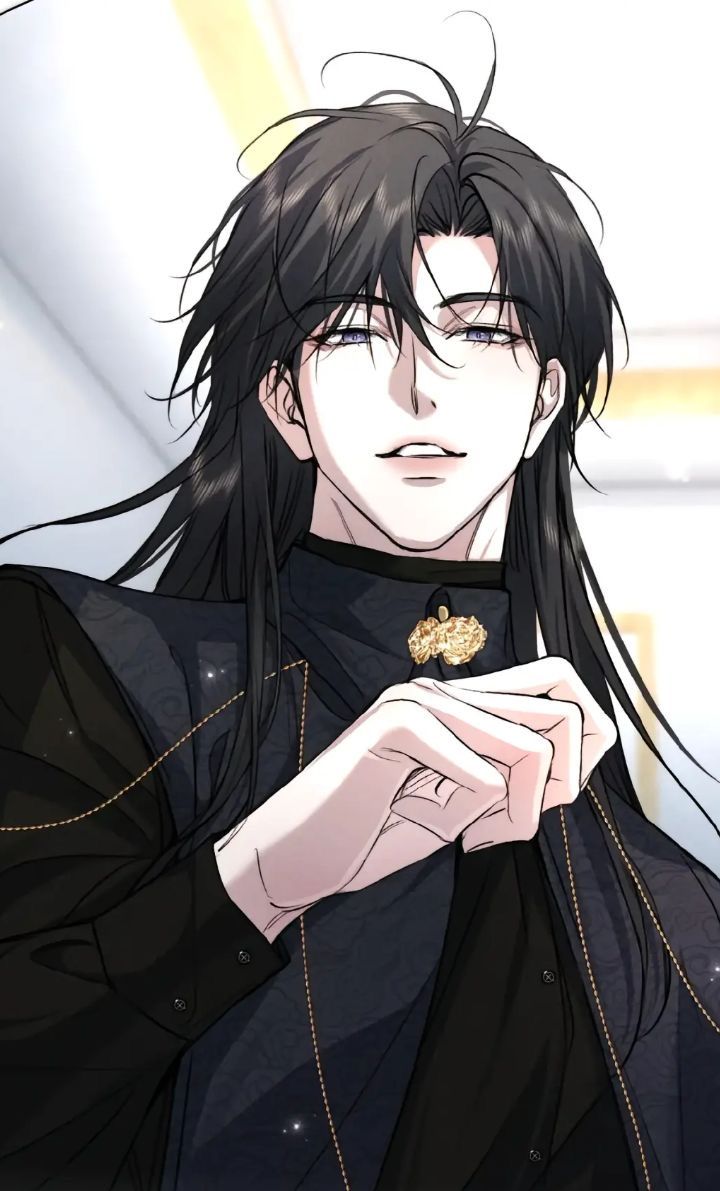Manhwa Guys

The world of comics and graphic novels has witnessed a significant rise in popularity and diversity in recent years, with one particular genre capturing the attention of readers worldwide: Manhwa. Originating from South Korea, Manhwa has carved a unique niche for itself, captivating audiences with its distinctive artistic style, compelling storylines, and a focus on a wide range of themes. In this comprehensive article, we delve into the captivating world of Manhwa, exploring its origins, the unique characteristics that set it apart, its global appeal, and the immense impact it has had on the comic book industry.
The Origins and Evolution of Manhwa

Manhwa, the Korean term for comics, has a rich history that dates back to the early 20th century. It emerged as a form of visual storytelling, influenced by traditional Korean art and the introduction of Western comics during the Japanese occupation. The early Manhwa artists, often referred to as manhwaga, pioneered a style that blended Korean aesthetics with elements borrowed from Japanese manga and American comics, creating a distinct visual language that would become synonymous with Manhwa.
Throughout the decades, Manhwa has evolved, reflecting the changing social, cultural, and political landscapes of South Korea. The 1960s and 70s saw the rise of popular adventure and historical Manhwa, while the 1980s brought a surge in science fiction and fantasy genres. The 1990s marked a significant turning point with the emergence of webtoons, a digital format that revolutionized the Manhwa industry and paved the way for its global success.
The Rise of Webtoons: A Digital Revolution
The advent of the internet and the development of webtoons revolutionized the Manhwa industry, making it more accessible and appealing to a wider audience. Webtoons, with their vertical scrolling format optimized for mobile devices, offered a unique reading experience that diverged from the traditional left-to-right panel layout of Western comics. This innovative format, coupled with vibrant colors and dynamic panel transitions, captured the imagination of readers worldwide, propelling Manhwa into the international spotlight.
Webtoons provided a platform for both established and emerging manhwaga to showcase their talent, offering a diverse range of genres and storytelling styles. From romantic comedies to epic fantasy adventures, webtoons offered something for every taste. Additionally, the serial nature of webtoons, with new episodes released weekly or monthly, created a sense of community and anticipation among readers, fostering a dedicated and passionate fan base.
| Webtoon Statistics | Data |
|---|---|
| Global Readership | Over 67 million monthly active users |
| Top Genres | Romance, Fantasy, Action, Slice of Life |
| Average Reading Time | 18 minutes per session |

Unique Characteristics of Manhwa

Manhwa possesses several distinctive characteristics that set it apart from other comic book genres. These unique features have contributed to its immense popularity and have helped it carve a special place in the hearts of readers worldwide.
Artistic Style and Visual Language
The artistic style of Manhwa is characterized by bold lines, vibrant colors, and a focus on emotional expression. Manhwa artists often employ dynamic poses and exaggerated facial expressions to convey the emotions and inner thoughts of their characters, creating a visually engaging and immersive reading experience. The use of innovative panel layouts, perspective shifts, and creative use of white space further enhances the visual storytelling, making Manhwa a feast for the eyes.
In terms of character design, Manhwa is known for its diverse and often highly stylized characters. The artists pay meticulous attention to detail, crafting characters with unique features, expressive hairstyles, and distinctive fashion styles. This attention to detail, coupled with the use of bright and varied color palettes, brings the characters to life and makes them instantly recognizable and beloved by fans.
Storytelling and Themes
Manhwa offers a vast array of genres and storytelling styles, from lighthearted romantic comedies to epic fantasy adventures and thought-provoking slice-of-life stories. One of the key strengths of Manhwa is its ability to explore a wide range of themes and subjects, often tackling complex and sensitive issues with sensitivity and depth. Whether it’s addressing social inequality, exploring mental health, or delving into the complexities of human relationships, Manhwa provides a platform for meaningful and thought-provoking narratives.
Moreover, Manhwa excels in world-building, creating rich and immersive fictional universes that transport readers to fantastical realms or alternative versions of our own world. The attention to detail in world-building, from intricate cultural systems to elaborate magical or technological advancements, adds depth and credibility to the stories, making them all the more engaging and captivating.
Global Appeal and Impact
The rise of Manhwa has had a profound impact on the global comic book industry, attracting a diverse and passionate fan base worldwide. Its unique artistic style, engaging storytelling, and focus on a wide range of themes have resonated with readers across different cultures and backgrounds.
Breaking Boundaries and Cultural Exchange
Manhwa’s global appeal has fostered a unique cultural exchange, bringing together readers from diverse corners of the world. The universal themes and relatable characters in Manhwa have transcended cultural barriers, creating a sense of connection and understanding among fans. This cultural exchange has not only enriched the reading experience but has also contributed to a more inclusive and diverse comic book landscape.
Furthermore, the success of Manhwa has challenged the traditional dominance of Western comics, paving the way for a more diverse and representative industry. The recognition and appreciation for Manhwa have opened doors for other non-Western comic book genres, fostering a more global and inclusive comic book community.
Influencing the Industry: Adaptations and Collaboration
The popularity of Manhwa has led to numerous adaptations across various media, including anime, live-action films, and television series. These adaptations have not only brought Manhwa to a wider audience but have also contributed to the cross-pollination of ideas and creative collaborations between different industries. The success of Manhwa adaptations has inspired similar ventures, further blurring the boundaries between different forms of media and storytelling.
Additionally, the global success of Manhwa has attracted the attention of major comic book publishers and studios, leading to collaborations and partnerships that have pushed the boundaries of comic book storytelling. These collaborations have not only enhanced the visibility and reach of Manhwa but have also contributed to the overall growth and evolution of the comic book industry as a whole.
The Future of Manhwa: Trends and Predictions
As Manhwa continues to captivate audiences worldwide, the future looks bright and promising. The genre has already established a solid foundation, with a dedicated fan base and a thriving industry. However, several trends and developments are shaping the future of Manhwa, offering exciting possibilities and new directions for its growth.
Diversification and Experimentation
Manhwa has already demonstrated its ability to diversify and explore a wide range of genres and themes. As the industry matures, we can expect to see even more experimentation and innovation. From exploring new art styles to pushing the boundaries of storytelling, Manhwa creators are likely to continue challenging conventions and offering fresh and unique experiences to their readers.
Furthermore, the rise of webtoons has opened up new opportunities for collaboration and diversification. With the digital platform providing a level playing field for emerging artists and writers, we can anticipate the emergence of new voices and perspectives, adding further depth and richness to the Manhwa landscape.
Global Expansion and Collaborations
The global success of Manhwa has already led to increased international collaborations and partnerships. As Manhwa continues to gain traction worldwide, we can expect to see more cross-cultural exchanges and collaborations between artists, writers, and publishers from different countries. These collaborations will not only enhance the visibility and reach of Manhwa but will also contribute to a more diverse and interconnected comic book industry.
Additionally, the increasing popularity of Manhwa in Western markets has opened up new opportunities for translation and localization. With more publishers and translators specializing in Manhwa, we can anticipate a greater availability of translated works, making Manhwa more accessible to a wider audience and further solidifying its global presence.
Adapting to New Technologies
The comic book industry has always embraced new technologies, and Manhwa is no exception. As technology continues to advance, we can expect to see Manhwa artists and creators exploring new mediums and platforms. From interactive digital comics to virtual reality experiences, Manhwa is poised to embrace the latest innovations, offering readers immersive and interactive storytelling experiences.
Moreover, the integration of artificial intelligence and machine learning into the creative process could revolutionize the way Manhwa is produced and consumed. These technologies could assist artists in streamlining their workflow, enhancing visual effects, and even generating new ideas, pushing the boundaries of what is possible in visual storytelling.
What distinguishes Manhwa from other comic book genres like manga or Western comics?
+Manhwa stands out for its unique artistic style, characterized by bold lines, vibrant colors, and dynamic facial expressions. It offers a diverse range of genres and explores a wide array of themes, often tackling complex issues with depth and sensitivity. The rise of webtoons has also revolutionized the Manhwa industry, providing a digital platform that has expanded its reach and appeal.
How has Manhwa influenced the global comic book industry and pop culture?
+Manhwa’s global success has challenged the traditional dominance of Western comics, fostering a more diverse and inclusive industry. It has inspired adaptations and collaborations across different media, leading to a cross-pollination of ideas and creative ventures. Manhwa’s unique style and themes have resonated with readers worldwide, contributing to a cultural exchange and a more global comic book community.
What are some of the most popular Manhwa titles and genres?
+Manhwa offers a vast array of genres, with popular titles spanning romance, fantasy, action, and slice-of-life stories. Some notable Manhwa titles include “Tower of God,” “The God of High School,” “True Beauty,” and “The Breaker.” These titles showcase the diverse range of storytelling and artistic styles within the Manhwa genre.
How can I access and read Manhwa titles?
+Manhwa is widely available through various online platforms and digital marketplaces. Popular webtoon platforms like Webtoon and Tapas offer a vast selection of Manhwa titles, often with new episodes released weekly or monthly. Additionally, translated Manhwa volumes can be found at comic book stores or through online retailers.



